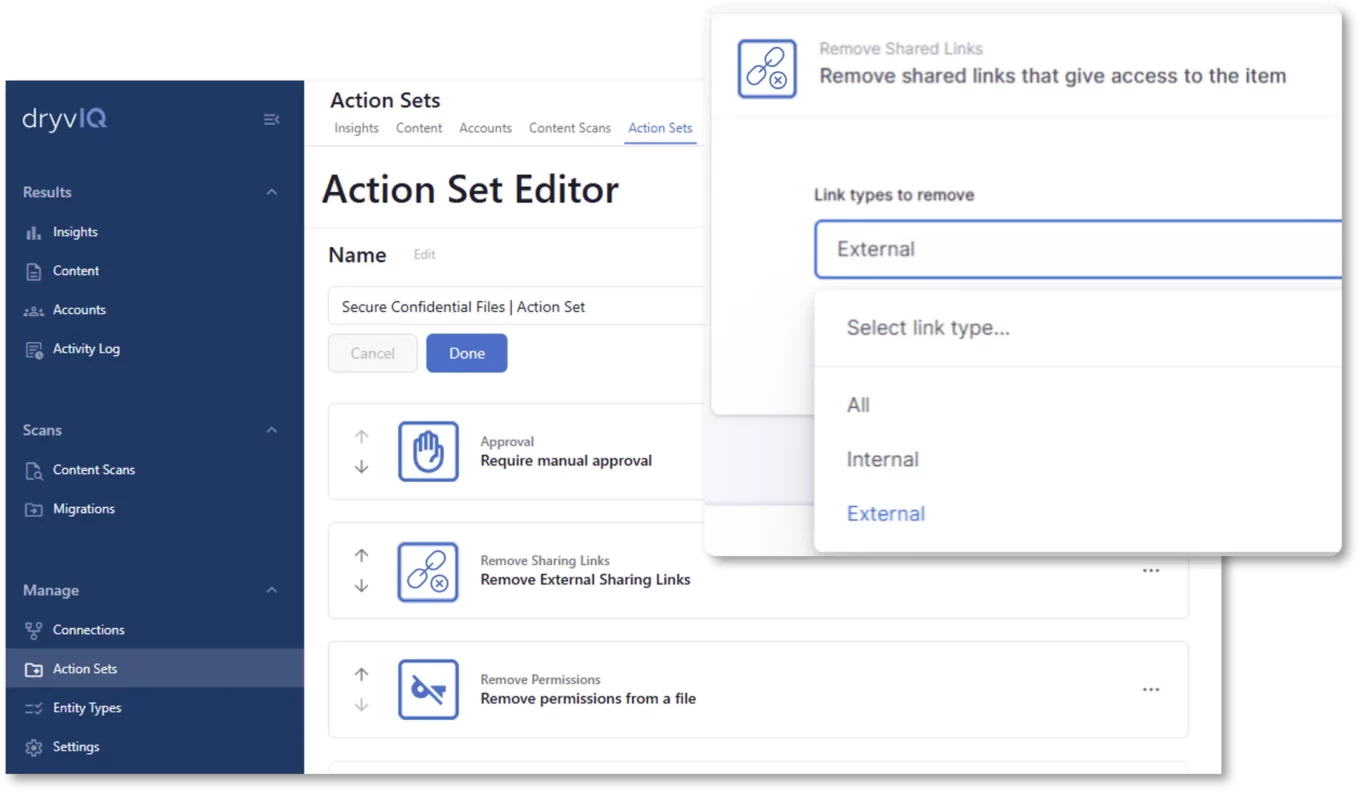Ellucian simplifies how their workforce does business, enables remote collaboration for more than 3,000 global users.
Clean, governed data powers confident action.
As data sprawls across clouds, platforms, and departments, the risks multiply. Sensitive files end up where they shouldn’t. Permissions go unchecked. And gaps in governance expose organizations to brand damage, IP loss, rising costs, and unreliable data that weakens decision-making. IDC identifies poor data governance and a lack of clean, unbiased training data as major barriers to achieving AI success—but the consequences extend far beyond AI. Strong governance is critical for protecting your business, unlocking value, and building a foundation for smarter growth.
- You can’t protect what you can’t see.
Unclassified, untagged, and unstructured content increases your exposure. Without visibility, your teams are flying blind—and your security posture suffers. - Access is often over-permissioned and under-managed.
When the wrong people have access to the wrong files, it opens the door to accidental leaks, internal misuse, or worse. - Data without governance can’t be trusted—or used.
Whether you’re trying to train AI or meet regulatory requirements, data must be properly classified, governed, and, when needed, anonymized. Otherwise, it’s a liability—not an asset.
Automated rules-based enforcement
We help you take control of your content—so it’s always protected, accessible to the right people, and ready for whatever comes next. DryvIQ’s holistic approach streamlines the governance and compliance of unstructured data by automating the movement, access control, labeling, and more.
- Automatically protect sensitive data by modifying or removing permissions and controlling sharing—minimizing unnecessary access and limiting risk
- Anonymize or encrypt sensitive data to preserve privacy, comply with regulations, and maintain usability for analytics and AI
- Enforce scalable data management through ongoing classification (scanning, assessing, labeling)
- Continuously purge or archive stale content to optimize storage capacity and minimize data (and in turn, minimize risk)


DryvIQ offered an efficient and cost-effective solution.
From risk reduction to AI readiness, take control of your content and drive real business impact.
Based upon classification labels, permissions, usage, and other parameters — customizable action sets can be automatically invoked. Action sets are a unique sequence of configured rules that perform one or more tasks such as:
|
|
|
|
|
|
|
|
|
|
|
|
|
|
|
|
|
